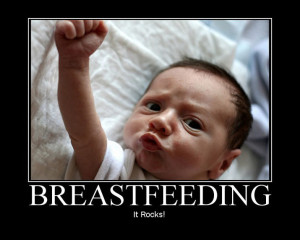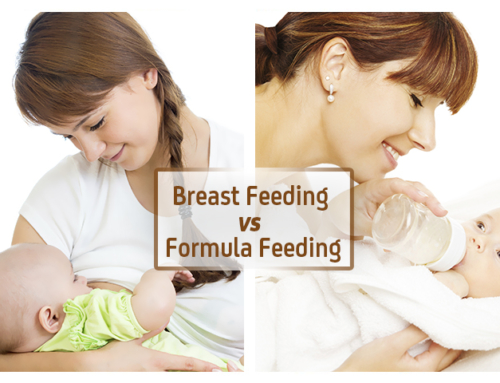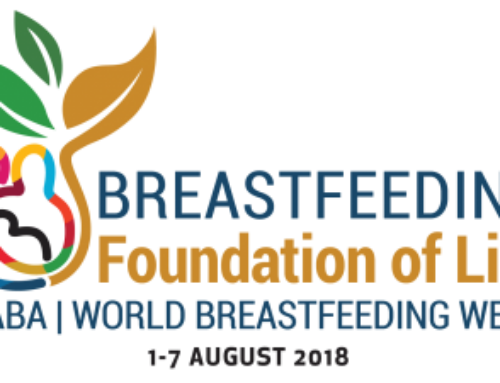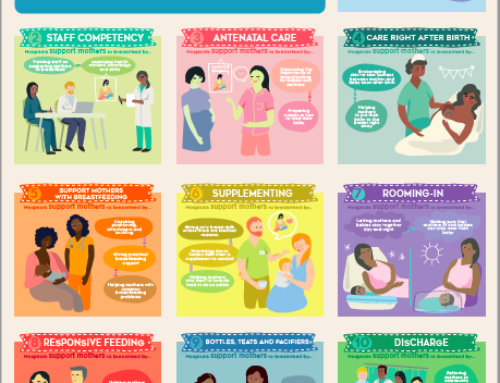Ever wonder why everything seems to happen faster in a second pregnancy? Why breastfeeding is often easier the second time around? It turns out it’s not just because you’ve been there and done that and know what to expect, but rather that your body actually remembers pregnancy and breastfeeding and can prepare itself better because certain epigenetic markers are already in place. At least according to new research published in Cell Reports.
Most mothers understand the pain and aggravation that comes with first-time nursing. The changes to your breasts that begin in pregnancy are only exacerbated once that little bundle arrives. Nursing is one of the most wonderful things women can experience when they want to, but it is also one of the hardest. What many of us forget is that these pains aren’t just social barriers in place, but real physical changes happening as well, most notably to the mammary glands.
How does epigenetics play a role in this? First we need to establish, for anyone unaware, what epigenetics refers to. We all know we have DNA and our genes express themselves in certain ways depending on how they are “programmed”. Epigenetics, broadly speaking, refers to changes to the genes that determine whether or not a particular gene is expressed or activated. Key to this is the fact that experiences are deemed critical to changes to our genes that determine their expression. In this particular case, the experience of being pregnant, giving birth, lactating, and weaning has long-term influences for the future expression of certain mammary gland genes. Let’s take a closer look…
The study herein, conducted by researchers in the US and UK
In order to determine any epigenetic changes, the researchers examined the methylation (the process by which a methyl group is added to certain genes, altering their ability to activate or be expressed), including Stat5a which is when the methyl is added to a particular position (the 5 position of cytosine for anyone who cares) which reduces gene expression, on genes in various basal and luminal cells in the mammary glands of mice who had either completed one or two full gestational cycles (pregnancy, birth, lactation, weaning, and involution) or who had never been pregnant. Although there were few differences in basal cells, there were many (>800) differences in the luminal cells between parous and nulliparous mice.
Mice who had not undergone a pregnancy cycle (nulliparous) showed Stat5a methylation in the genes of most luminal cells, signaling that the expression of these mammary gland cells – namely for milk production – was inhibited. However, parous mice showed hypomethylation in the same cells even after involution when the body is no longer in any state of pregnancy and the gland has returned to its “virgin” state. Additionally, once pregnancy hormones were introduced to all mice, the reactivation of these particular luminal cells in the parous mice was much faster than the activation for the nulliparous mice, suggesting an epigenetic memory of previous pregnancies and resulting in faster changes pertaining to milk production.
From an academic perspective, the idea that our mammary glands remember previous pregnancies and nursing is just plain cool. However, there are also practical implications. For the nursing mother, this research may highlight the long-term importance of making it through the hard periods of nursing in order to successfully nurse the second time around. Getting through the hurdle once may mean an easier ride for subsequent pregnancies. Or as put by the researchers, these epigenetic changes “result in the elaboration of a gland [that] functions more effectively during subsequent pregnancies.”[1] When we talk about support for mothers, we need to remember it’s support not just for this pregnancy, but also for future pregnancies.
One problem here is that the researchers speak of the effect of “pregnancy” and not lactation. This is done because they seem to be speaking about the full pregnancy cycle which includes lactation, but it is unknown which element is critical to this hypomethylation process. Is it the pregnancy? Is it the lactation? Or is it both? My bet is on both and not just the initial changes that occur during pregnancy. I’m not pulling this out of a hat, but rather it has to do with the second big implication for these findings: Breast Cancer.
The luminal cells, which were most influenced by epigenetic changes from the gestational cycle, are also those which are implicated in most forms of breast cancer. Epigenetic changes have been known to be associated with the onset of various forms of cancer, specifically methylation or hypomethylation (depending on the genes). What we do know about breast cancer is that pregnancy and lactation reduce a woman’s risk and these effects are independent and dose dependent. Pregnancy alone decreases a woman’s risk and breastfeeding duration is inversely related to risk (i.e., longer duration of breastfeeding = a lower risk of breast cancer). These effects are independent of each other and the current research suggests they may be due to the methylation changes, specifically the Stat5a changes, in the luminal cells of the mammary gland. Obviously more research is needed, but this could have major implications for breast cancer research.
What is the take home lesson? First, our bodies are pretty amazing and the field of epigenetics never ceases to amaze me (and we’re only scratching the surface). Second, if you’re experiencing the pain and frustration that comes with nursing for the first time, you can add to your list of “reasons to persevere” the long-term effects that this will have going forward. Pushing through will help change your mammary gland to a more effective one, making nursing (hopefully) easier the next time around. You can think of these changes as not just for the moment, but forever. Finally, we may be closer to understanding some of the mechanisms behind why breastfeeding and pregnancy reduce a woman’s risk of breast cancer and that’s amazing as it may help create treatment for those who suffer. Once again, human milk may be at the centre of saving lives and that’s always amazing and needs to be shared.
You can read more on breastfeeding and breastfeeding support here:
[amazon_image id=”0307345580″ link=”true” target=”_blank” size=”medium” ]The Ultimate Breastfeeding Book of Answers: The Most Comprehensive Problem-Solving Guide to Breastfeeding from the Foremost Expert in North America, Revised & Updated Edition[/amazon_image] [amazon_image id=”B009R53OZ2″ link=”true” target=”_blank” size=”medium” ]Dr. Jack Newman’s Guide to Breastfeeding: Revised Edition[/amazon_image] [amazon_image id=”0553384295″ link=”true” target=”_blank” size=”medium” ]Ina May’s Guide to Breastfeeding[/amazon_image] [amazon_image id=”1780662157″ link=”true” target=”_blank” size=”medium” ]Breast Intentions: How Women Sabotage Breastfeeding for Themselves and Others[/amazon_image] [amazon_image id=”0345518446″ link=”true” target=”_blank” size=”medium” ]The Womanly Art of Breastfeeding[/amazon_image]_____________________________________
[1] Dos Santos CO, Dolzhenko E, Hodges E, Smith AD, Hannon GJ. An epigenetic memory of pregnancy in the mouse mammary gland. Cell Reports, 2015, in press. DOI: 10.1016/j.celrep.2015.04.015






This is interesting…. and explains maybe why nursing my second kid is so much easier. Not that my first son was a difficult one – only the first two weeks where hard, when I had to kick the footstool every time he latched on 😉 Afterwards we had two relaxed years of breastfeeding.
I don’t know if there is any guidance for breastfeeding after giving birth in the US – here in Iceland the only advice was “hold him like this!” and I was given some strange plastic nipple protector when he failed to latch on the first time. I threw it away the next morning. Anyway, I read a lot about the benefits of breastfeeding, was determined to get through those first two weeks and had the full support of my partner, so everything turned out fine. But I think it is crucial to have proper guidance in the first few days for all women, especially for those who aren’t so lucky to have the support I had. Notably older midwives tend to impose formula on new mothers, and I think that many don’t question this.
This is fascinating! I wonder what other differences occur between pregnancies in terms of epigenetics changes. For example, I wonder if any of the anecdotal ideas about first born temperaments versus later born temperaments could be explained by differences in prenatal environment.